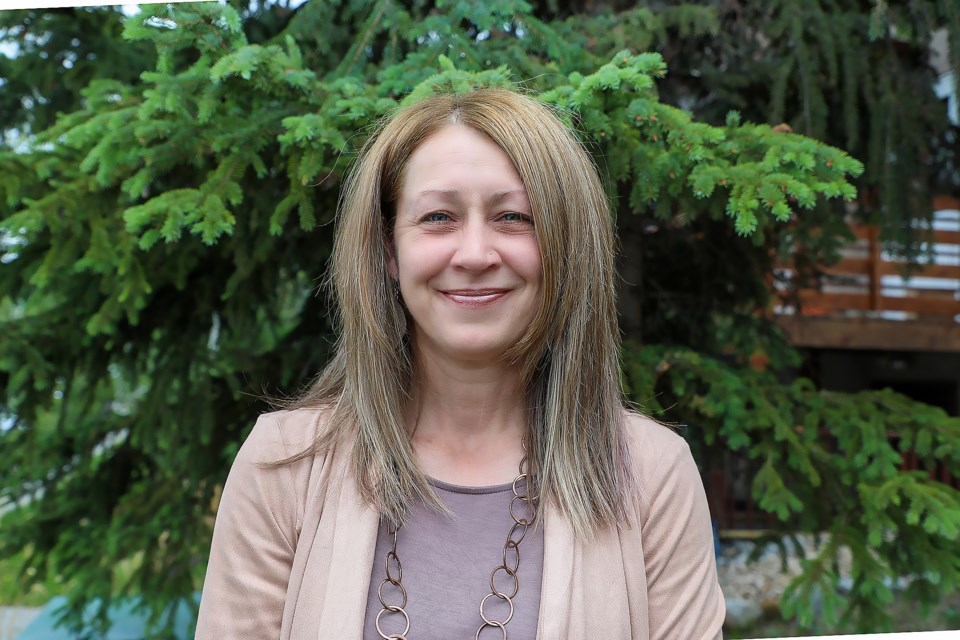BANFF – Banff’s businesses are voicing concern about the draft municipal budget projecting a 10.3 per cent tax hike as they continue to recover from the crippling blow of the COVID-19 pandemic.
That starting double digit increase does not take into account any of the 37 new projects, programs or staff positions – totalling about $1.2 million in the operating budget and $1.9 million in the capital budget – that are being pitched during service review that got underway Wednesday (Nov. 30).
Officials with Banff Lake Louise Hospitality Association (BLLHA) have asked council to take a ‘cautionary approach’ during budget deliberations as businesses continue to climb out of the fallout of the pandemic and now brace for an anticipated recession.
“Given the length of time expected for businesses to recoup the persistent revenue losses, we have heard concerns around the tax increase proposed for 2023,” said Wanda Bogdane, BLLHA executive director, noting that working toward full economic recovery is a key focus of the group’s 2023 business plan.
Bogdane said BLLHA membership hopes council factors in fiscal restraint alongside carefully targeted investments during the budgeting process and to pace out the resumption of capital projects and budget cut reversals.
She pointed to reports released by Destination Canada on Nov. 22 showing international overnight arrivals reached 61 per cent of 2019 levels this past summer, but that tourist expenditures and international arrivals are not set to return to a long-term growth trend until 2026.
“This is of enormous importance to a visitor-reliant economy such as ours in Banff, as the spend of international guests is four to one from that of domestic travellers,” said Bogdane.
“In order to balance back the depth of the loss endured over the last couple of years… this is not a situation where one season or even a couple of strong summers will equalize it. The loss was just simply too deep.”
Dubbed by the Town of Banff as a recovery budget, the 10.3 per cent increase as a starting point in the draft document is comprised of 5.4 per cent from inflationary costs plus close to five per cent for previously approved projects such as an additional RCMP position among others.
Staff are set to get a 5.4 per cent cost-of-living increase and the budget also identifies $660,000 from taxes – and $159,000 from utility fees – to further increase staff wages following an independent study that determined Banff’s wages are generally below comparable market rates.
Other proposed projects for 2023 include an energy efficiency retrofit of the fire hall, the downtown pedestrian zone, more buses on weekends and evenings on Roam’s regional Banff-Canmore service, and an expanded adventure playground, bike skills park and skating rink at the recreation grounds.
Every $202,300 spent in the operating budget equates to an increase in the municipal property tax levy of one per cent. A 10.3 per cent municipal property tax increase represents an increase of about $9.70 per month for a typical residential property assessed at $467,100.
At service review on Wednesday morning, governance and finance committee voted 6-1 to amend the 2023 operating budget by applying a one-time transfer of $500,000 from the visitor paid parking reserve to public transit operations to ease the burden on taxpayers.
Mayor Corrie DiManno said net revenue this year from visitor paid parking is $1.2 million – and that’s after allocating dollars to active mode programs and transit enhancements – with projections of $1.9 million in 2023, $2.3 million in 2024 and $2.8 million in 2015.
“This is a way the visitor can contribute directly to reducing taxes… I see this as a way to shift the tax requirement for transit off our residents and businesses and onto the parking user,” she said.
“If we can support something like this, then it creates that breathing room to add those need-to-haves in the operating budget.”
Chris Hughes, the director of corporate services for the Town of Banff, said the tax increase between 2019 and 2023 was 7.8 per cent over the four years due to the deep cuts that were made at the beginning of the pandemic.
He said the average compound increase in taxes from 2019 to 2023 is 1.9 per cent, adding average Alberta CPI over that same period was 2.7 per cent “so we have offered an increased level of service over the last four years at a below inflationary increase.”
“In 2020 we offered the taxpayers of Banff a 17 per cent tax decrease, and we’ve been digging ourselves out of that hole ever since,” he said.
Hughes also reminded the committee that Banff has the lowest per capita taxes compared to other communities including Calgary, Cochrane, Jasper and Okotoks, at just under $1,000 per person.
“That is possible in large part because of the relative strength of our non-residential sector,” he said.




